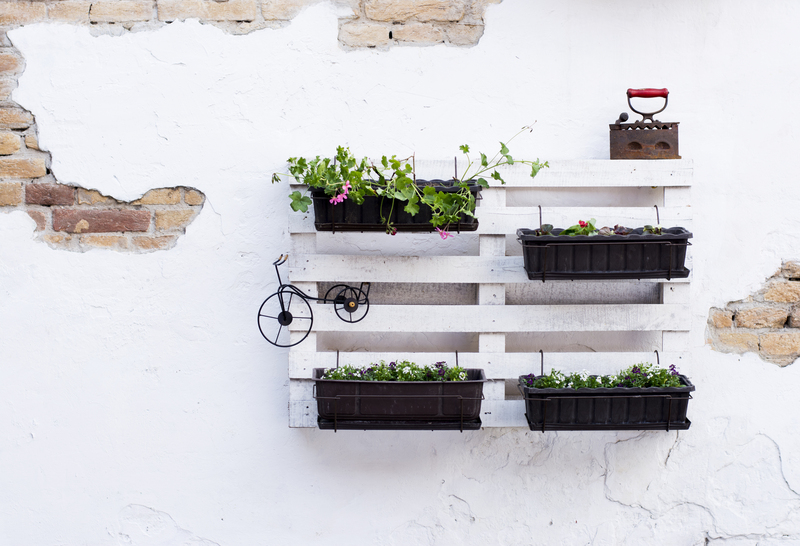Eco-Friendly Tips to Lower Household Waste Levels
In an era of increasing environmental awareness, more families are seeking effective ways to reduce household waste. Excessive waste not only harms the planet but also contributes to pollution and resource depletion. Adopting eco-friendly practices can significantly help in minimizing the waste generated at home. In this comprehensive guide, you will discover a range of actionable tips to lower your domestic waste impact and contribute to a greener future.

Understanding Household Waste and Its Impact
Before delving into practical methods to cut down home waste, it is important to understand what household waste includes and the consequences it has on the environment.
What is Household Waste?
Household waste encompasses all the everyday items that families throw away, such as food scraps, packaging, plastics, paper, electronics, and cleaning products. According to environmental reports, an average household can generate up to several kilograms of waste each week, much of which ends up in landfills.
Why Reducing Home Waste Matters
- Minimized landfill use: Lowering domestic waste cuts the volume sent to landfills, extending their lifespan and reducing methane emissions.
- Lower carbon footprint: Waste production and disposal consume energy and release greenhouse gases. Reducing waste helps cut your household's environmental impact.
- Conservation of resources: Many products are made using finite resources. By reusing and recycling, you help preserve these resources for future generations.
- Cost savings: Consuming less and reusing more often leads to financial savings for families.
With these benefits in mind, here are eco-friendly tips to manage household waste and cultivate sustainable living habits.
1. Adopt a Zero Waste Mindset
Before taking practical action, cultivating a zero-waste mentality is essential. This means reassessing purchasing habits and opting for items that have a minimal environmental impact. Whenever possible, choose reusable and recyclable products over single-use items--every small step counts!
Steps to Embrace a Zero Waste Lifestyle:
- Refuse: Politely decline single-use plastics such as straws, cutlery, and shopping bags when they're not needed.
- Reduce: Buy only what you need and avoid impulse purchases and unnecessary packaging.
- Reuse: Opt for products that can be reused multiple times, like glass containers and shopping totes.
- Recycle: Make sure to sort recyclables and follow your locality's recycling guidelines.
2. Cut Down on Food Waste
Food waste makes up a large part of overall domestic refuse. According to studies, nearly 30-40% of purchased food is thrown away each year. Here are several eco-friendly food waste solutions that can make a difference.
- Plan meals: Create a meal plan and shopping list to buy only what you need, preventing over-purchasing.
- Proper storage: Store fruits and vegetables correctly to prolong freshness and avoid spoilage.
- Use leftovers: Get creative with leftovers by reinventing meals or freezing surplus food for future use.
- Compost: Set up a compost bin for organic waste such as vegetable peels, coffee grounds, and eggshells. Composting returns nutrients to the soil and reduces landfill waste.
3. Reusable Alternatives Over Single-Use Items
Replace disposable items with eco-friendly reusable options to greatly lower the amount of trash your household generates.
- Bags: Carry cloth grocery bags and produce bags instead of plastic bags.
- Containers: Store food in glass or stainless-steel bottles, lunchboxes, and containers.
- Beeswax wraps: Replace cling film with beeswax wraps for preserving food.
- Reusable cups and straws: Use stainless steel or bamboo straws and insulated coffee cups for drinks on-the-go.
- Battery options: Switch to rechargeable batteries for gadgets and remotes.
4. Rethink Personal Care and Cleaning Products
Many household and personal care products come in single-use, non-biodegradable packaging. Switch to sustainable alternatives for daily cleaning and personal care routines:
- Bar soaps: Use bar soap instead of liquid soaps in plastic bottles.
- Refill stations: Purchase cleaning detergents and shampoos in bulk from refill stores to reduce packaging.
- Homemade cleaners: Make natural cleaning products using ingredients like vinegar, baking soda, and lemon to cut down on chemical waste.
- Rags over paper towels: Swap single-use paper towels for washable rags or sponges.
Tips for Sustainable Shopping Habits
- Buy in bulk: Purchasing larger quantities reduces individual packaging and is often more affordable.
- Support local: Shop at farmers markets and local grocery stores to support small businesses and reduce packaging waste.
- Look for minimal packaging: Choose brands that use recyclable or compostable materials.
5. Recycle Right to Lower Domestic Waste
While recycling is an excellent step, it is important to recycle correctly to ensure your efforts have a positive effect.
- Understand guidelines: Learn what materials are accepted in your community's recycling program.
- Rinse containers: Clean out food and beverage containers to prevent contamination.
- Don't bag recyclables: Place items loose in the recycling bin rather than in plastic bags.
- Recycle electronics: Donate used electronics or take them to authorized e-waste collection points.
6. Composting: Nature's Way to Recycle
Composting is a natural process that transforms organic waste into nutrient-rich soil. Setting up a compost system helps reduce the amount of home food waste sent to landfill and benefits your garden.
How to Start Composting at Home:
- Set up a bin: Use a backyard compost bin or a small kitchen compost caddy for apartments.
- Balance materials: Alternate between green (vegetable peels, coffee grounds) and brown (leaves, cardboard) matter.
- Avoid: Do not compost meat, dairy, or oily foods which attract pests and cause odors.
- Turn it regularly: Stir your compost to aerate and accelerate the decomposition process.
Composting not only recycles valuable nutrients but also reduces the volume of household garbage.
7. Donate or Repurpose Unwanted Items
Another way to effectively reduce domestic refuse is to avoid throwing away items that others can use. Practice responsible decluttering:
- Donate: Clothing, toys, and furniture in good condition can be donated to shelters, charities, or thrift stores.
- Repurpose: Upcycle jars, bottles, and boxes into storage containers, crafts, or plant pots.
- Host a swap: Organize item swaps among friends or neighbors to exchange books, appliances, or sports equipment.
8. Practice Conscious Consumption
Every purchase you make has an environmental impact. Reduce household waste by:
- Choosing quality over quantity: Invest in durable goods that last longer, even if they cost a bit more up front.
- Repair instead of replacing: Mend clothing, fix appliances, and repair electronics whenever possible.
- Borrow or rent: For occasional-use items like tools or party supplies, borrow from friends or rent locally.
9. Educate and Involve the Whole Family
Long-term waste reduction is most successful when everyone in the household participates. Engage children and adults alike with fun and informative activities:
- Set up a recycling station: Designate clearly labeled bins for recyclables, compost, and trash.
- Lead by example: Show children how to sort waste and explain why it matters.
- Host eco-friendly challenges: See who can come up with creative ways to reuse items, or who generates the least waste in a week.

10. Monitor Progress and Celebrate Achievements
Track your household's waste reduction efforts to stay motivated and see tangible results. Some ways to monitor your progress include:
- Weigh your garbage: Keep a log of trash generated each week and aim for gradual reduction.
- Set waste-reduction goals: Make targets for recycling rates, compost output, or fewer single-use purchases.
- Celebrate milestones: Reward sustainable behavior with a family outing or eco-friendly gifts.
Summary: Sustainable Living Begins at Home
Lowering household waste levels is not only about adopting a few green habits; it's about creating a long-term sustainable lifestyle. By following these eco-friendly household waste reduction tips, every family can make a significant positive impact on the planet while also enjoying cleaner homes and often saving money. Remember, each small change builds towards a greener and healthier future!